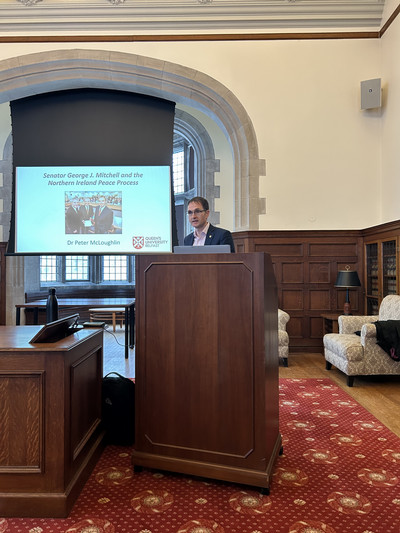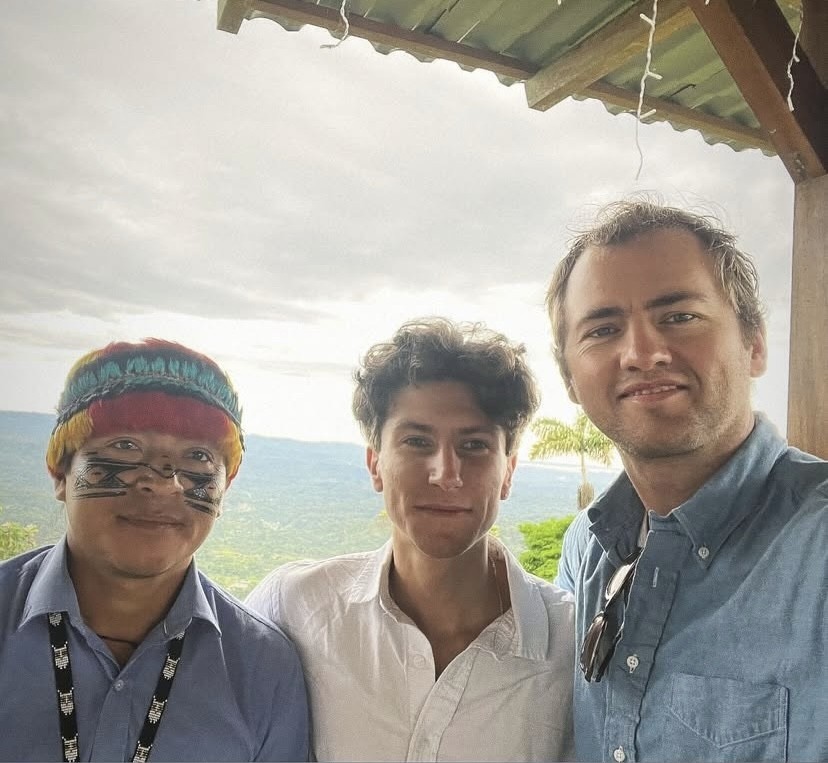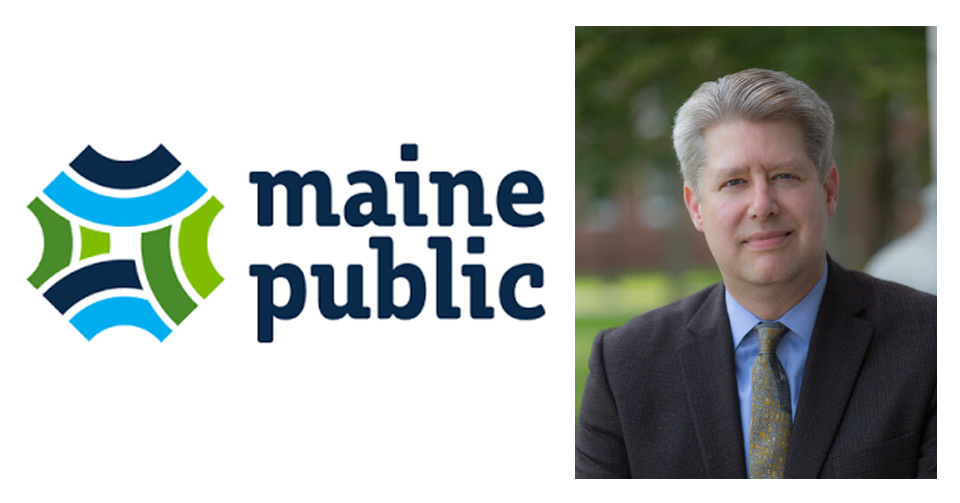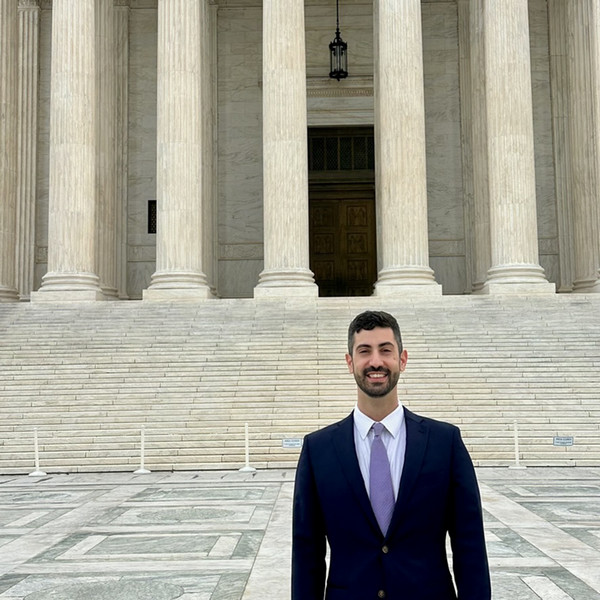Government Scholars See “Tumultuous Year” Ahead for GOP
By Tom PorterProfessor of Government Michael Franz sees turmoil ahead for the Republican Party following former President Donald Trump’s recent announcement that he plans to run for the White House in 2024.
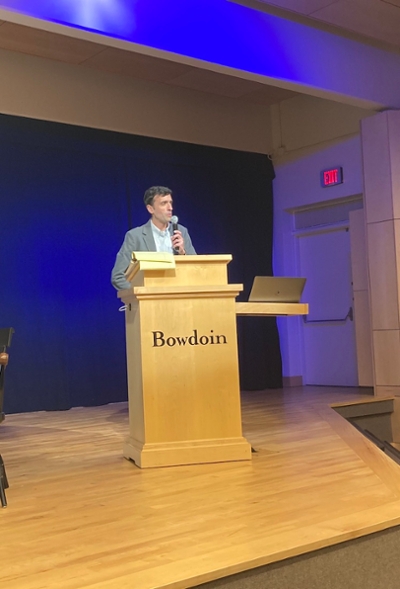
“Those Republicans who have said very little in opposition to Trump now have to decide whether to support him or not, and that’s going to make for a tumultuous twelve months ahead for the GOP,” said Franz at a recent public event. “It seems like there are a number of potential Republican candidates who have a very good chance of winning in 2024,” he explained, “including [Florida governor] Ron Desantis… So, Republicans probably will have to decide whether they want to bet on Trump one more time, knowing that he has a core base of supporters who still love him, or that it's time to cut bait and start over,” added Franz.
Many Republicans, he said, will be aware that Trump has not enjoyed a good election cycle since 2016. “Also, he didn't win the popular vote in either presidential election and I can't imagine him winning the popular vote the third time around, so that just makes it much harder for the GOP to see him as the pathway forward.”
Sharing the stage with Franz at Kresge Auditorium was Assistant Professor of Government Ángel Saavedra Cisneros, who highlighted another important factor. “With the presidential primary more than a year away and the general election almost two years off, the question is—Does Trump have the energy? He’s not the youngest of candidates.” Furthermore, in 2015 and 2016, said Saavedra Cisneros, “Trump commanded the airwaves with a series of offensive comments about his opponents, getting billions of dollars’ worth of, effectively, free advertising. Is he likely to do this again? I don’t think so, but then again….?”
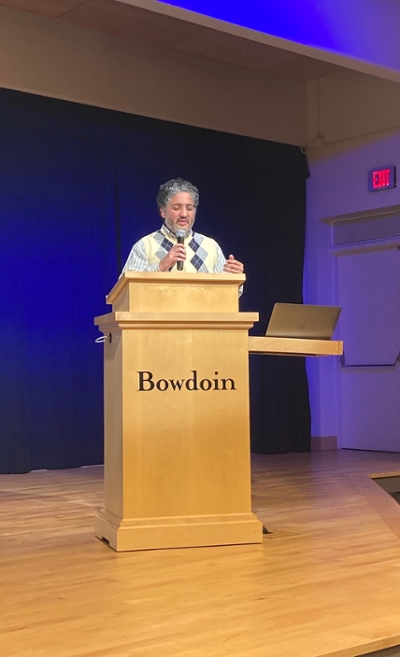
Saavedra Cisneros and Franz were taking part in a postelection debrief on November 15 in front of members of the Bowdoin community. Before taking questions from the audience, they discussed various aspects of last week’s midterm elections, which for several reasons were not typical of a general election at this stage in a presidency, said Franz. For one thing, the expected “red wave” did not materialize—instead we got a “red ripple”—and the president’s party did much better than is normally the case at this stage, with the Democrats maintaining a narrow majority in the Senate and the Republicans gaining only a slim majority in the House. The last time the presidential party roundly won the midterms during the first term of a new president was 2002, said Franz, when the electorate rallied around George W. Bush in the wake of the 9/11 attacks the previous year.
Franz, an expert in issues like campaign finance and political advertising who codirects the Wesleyan Media Project, pointed out that more than 2.7 billion dollars was spent on broadcast television ads over this election cycle—a 10 percent increase over what was spent on the 2018 midterms. That’s a big expense, he observed, given how little the congressional balance of power changed as a result of the election. “When you think about how much was spent, it’s kind of crazy to think about how little things moved.”
Preliminary turnout estimates suggest a higher than average number of around 47 percent, said Franz, but this is still lower than the 2018 midterms, when turnout was at a one-hundred-year high. Young people still appear to be not turning out in huge numbers for the midterms, he added, with rough estimates suggesting around 27 percent of people aged eighteen to twenty-nine turning up to vote. To try to encourage a higher turnout, many states are trying to make early and absentee voting easier, said Franz, and this year saw an increase in early voting compared to the 2018 midterms, “although not as high as in the 2020 presidential election, when we saw a big jump as the pandemic caused many voters to stay at home.”
“Those Republicans who have said very little in opposition to Trump now have to decide whether to support him or not, and that’s going to make for a tumultuous twelve months ahead for the GOP.” Michael Franz.
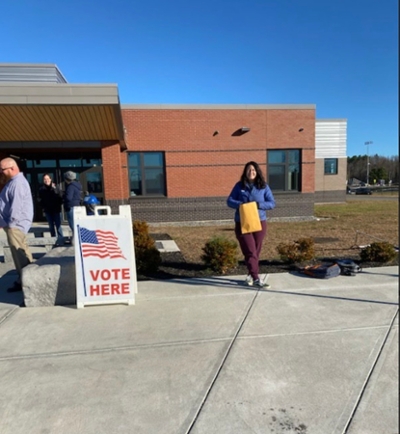
Saavedra Cisneros talked about exit polls and what they might tell us about why people are voting. A group of his students conducted their own exit polls locally in Brunswick and Topsham, he said, and their findings reflected national trends. “Democrats care about issues like gun control and abortion for example, and Republicans are typically concerned about crime, immigration, and inflation.” Voters at the midterms were also asked about whether they perceived democracy to be under threat, he noted, and this is an issue to which both sides could answer ‘yes’ but for completely different reasons—Republicans because they believe Trump’s false claims about the 2020 election being stolen, and Democrats because they’re concerned about the events of January 6, 2021.
Much of Saavedra Cisneros’s scholarly focus is on political behavior and racial and ethnic politics, his interests heavily influenced by his experiences being raised in both the USA and Mexico. Looking at the way minority groups tend to vote, he said, shows us that Black people are still predominantly Democratic. The Latino population is less of a monolith and varies more from state to state. In Florida, for example, less than half of Latinos polled said they would vote Democrat, but this does not represent the national picture. “Latinos are not as partisan as some groups,” said Saavedra Cisneros, “but they’re still trending toward the Democrats by a factor of nearly two to one.”
